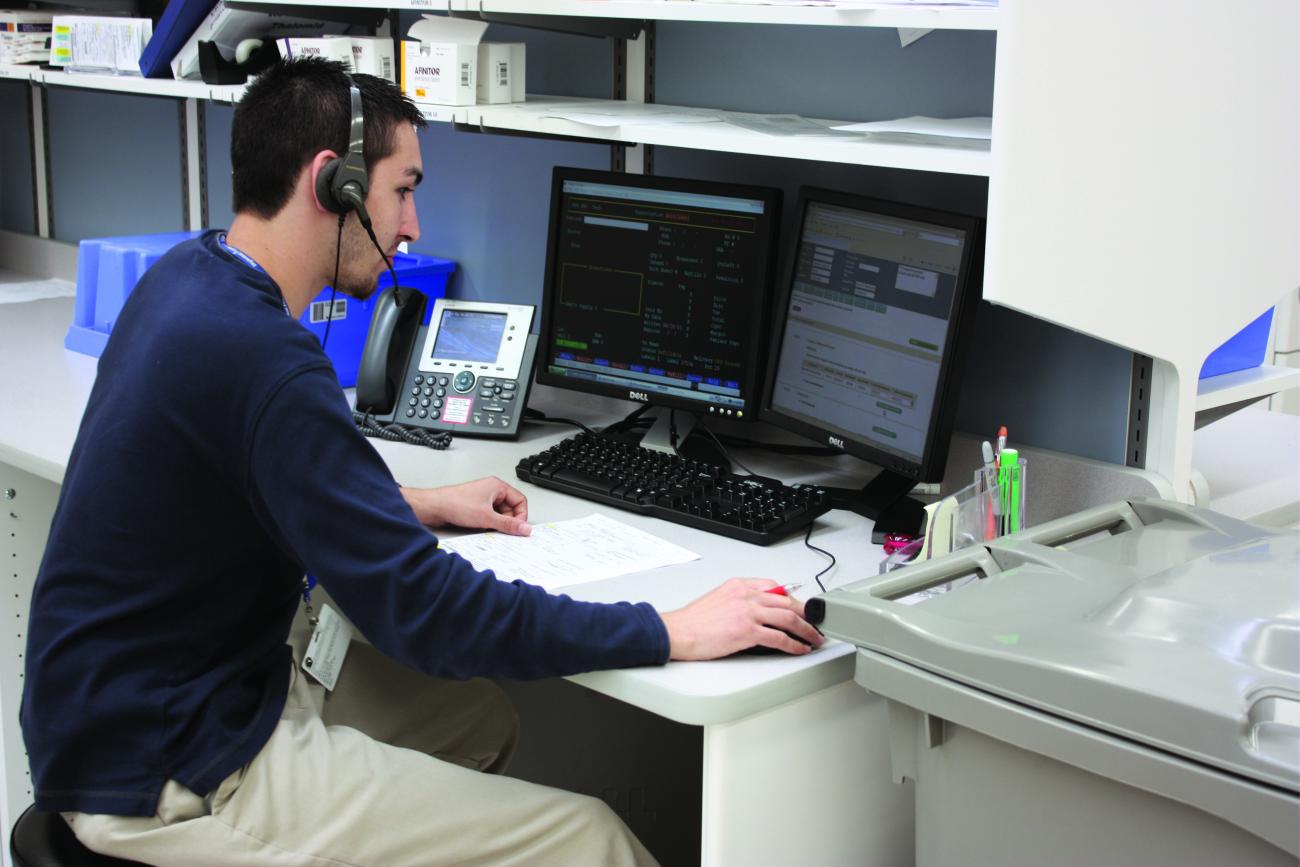A resource for patients, prescribers and payers
Ask any of the roughly 900 people who work for Diplomat Specialty Pharmacy what the company is best known for, and you might get a variety of answers: creating a patient-centric, information-driven business model that merges effective clinical care and patient outcomes with lower costs for patients and payers; giving retail pharmacies the resources to compete in the specialty pharmacy arena; or boosting average patient adherence rates to 90% and above through effective management of patients, drug utilization data and out-of-pocket costs. But boiled down to its essence, the key question for Diplomat, said VP clinical services Gary Rice, is "how do we maximize the patient's experience?"
"Persistency and compliance are just two of the surrogate markers of patient experience," Rice noted. "If we can create realistic goals and objectives for how those patients manage themselves through a particular drug treatment plan, and we're helping them do that, there's a much greater chance that the patient not only will stay on that med, but that the patient optimizes outcomes. And in the long run, everybody wins.
"Teams of pharmacists, patient care coordinators and insurance and funding specialists all work directly with patients to support them as they and their caregivers grapple with serious, often life-threatening conditions and drug regimens that often come with difficult side effects and high costs.
"We want our care coordinators to understand the journey these patients go through," said CEO Phil Hagerman. "How often do you think about breast cancer, and the fact that many of these women are debilitated for six to nine months during the treatment? What does that do to the mother who is a single-parent head of household who loses her job because she can't go to work, she runs through all of her [financial benefits], and she eventually loses everything?"
For that reason, helping align patients with sources of funding and co-pay assistance to help allay their out-of-pocket costs has become a prime focus for Diplomat's patient-support activities. As Robert Fleckenstein, VP operations, puts it: "If we can't clear the financial barriers, the other services we offer patients fall by the wayside."
Thus, Diplomat employs a team of 15 funding specialists "focusing on doing nothing but working directly with the patient to facilitate those applications," said Stephanie Turnbull, director of patient access and member benefits management. Those 15 or so specialists saved thousands of patients roughly $19 million in direct out-of-pocket savings last year through non-profit organizations, and "that doesn't include additional options ... such as co-pay cards or manufacturer programs," she added.
"Patients don't know that these funds are available," she said.
Diplomat's funding team is composed of specialists in different disease states or therapies like cancer and immunology "because those specialists can focus on different sources of funding," Fleckenstein said.
"The key point is to be the facilitator, and to take as much burden off the patient and the prescriber as possible," Turnbull added. "We're the coordinator between the prescriber, the insurance company, the [funding support] foundation and the patient — to be that central point to answer all those questions for the patient ... instead of having to call five different people."
Diplomat's service model even extends to suicide prevention counseling. That effort goes hand-in-hand, Hagerman said, with the ongoing management and monitoring of patients by the company's patient care coordinators and pharmacists, including looking for signs of depression. "We do a lot of depression screening around our therapies, and we find depression to be a very serious problem with chronic illnesses like multiple sclerosis — especially around early diagnosis," he explained. "The early diagnosis of a serious chronic illness is one of the most challenging times the patient ever goes through."
Jennifer Cretu, VP information technology and marketing, says that the company's homegrown software platform, eNAV (Electronic Navigator), provides the "underlying technology" that supports "a high-touch model and seamless patient experience."
Originally launched in 2008 to help guide Diplomat's care specialists and clinical decision-making for patients with MS, eNAV's workflow application now supports treatment applications for 20 disease states.
The goal, Cretu explained, "was to move away from managing patients with calendars and Excel spreadsheets. eNAV guides our patient care specialists through patient-specific care plans."
Those care plans, she added, "are driven by the system, and allow for the collection of patient demographics, historical adherence and surveys, refill assistance and clinical reporting."
Cretu called eNAV "essentially the legs for our company," allowing Diplomat to "take better care of our patients with complex diseases that have high costs," against a backdrop of increasing health regulations and REMS requirements. "We needed a system that was flexible enough to manage all those pieces and transfer data back to our pharma partners, prescribers and payers ... to take better care of the patient," she said.


